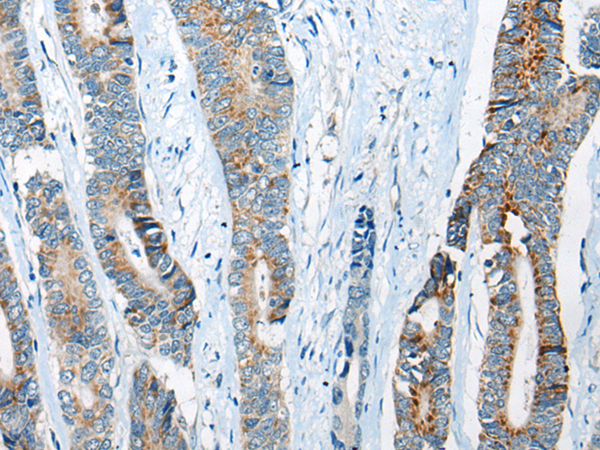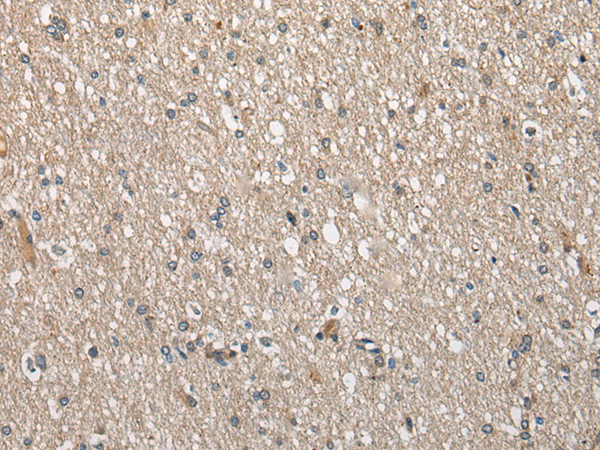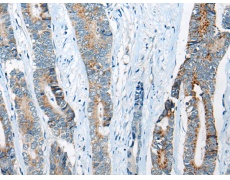中文名稱:兔抗CIITA多克隆抗體
|
Background: |
This gene encodes a protein with an acidic transcriptional activation domain, 4 LRRs (leucine-rich repeats) and a GTP binding domain. The protein is located in the nucleus and acts as a positive regulator of class II major histocompatibility complex gene transcription, and is referred to as the "master control factor" for the expression of these genes. The protein also binds GTP and uses GTP binding to facilitate its own transport into the nucleus. Once in the nucleus it does not bind DNA but rather uses an intrinsic acetyltransferase (AT) activity to act in a coactivator-like fashion. Mutations in this gene have been associated with bare lymphocyte syndrome type II (also known as hereditary MHC class II deficiency or HLA class II-deficient combined immunodeficiency), increased susceptibility to rheumatoid arthritis, multiple sclerosis, and possibly myocardial infarction. Several transcript variants encoding different isoforms have been found for this gene. |
|
Applications: |
ELISA, IHC |
|
Name of antibody: |
CIITA |
|
Immunogen: |
Synthetic peptide of human CIITA |
|
Full name: |
class II, major histocompatibility complex, transactivator |
|
Synonyms: |
C2TA; NLRA; MHC2TA; CIITAIV |
|
SwissProt: |
P33076 |
|
ELISA Recommended dilution: |
5000-10000 |
|
IHC positive control: |
Human brain and human gastric cancer |
|
IHC Recommend dilution: |
25-100 |


 購物車
購物車 幫助
幫助
 021-54845833/15800441009
021-54845833/15800441009
